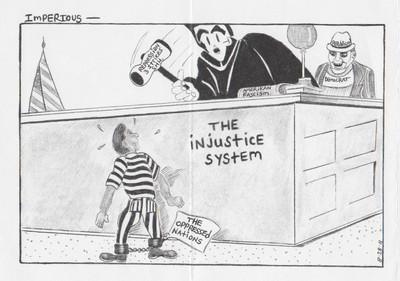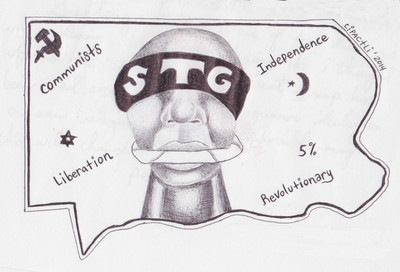
Feds Punish Legal Battles with Extreme Isolation
On 8 October 2014 I was suddenly awoken by men in black (literally) with guns who simply stated, “Get dressed you’re leaving ADX.” The United States Penitentiary, Administrative Maximum Facility (ADX) is considered the end of the line in the Federal prison system and the conditions of confinement are often more extreme than other facilities. ADX is where terrorist suspects are held in the United $tates.
While I had fought for 11 years to be released from solitary confinement, I was not expecting this sudden transfer. I was compelled to leave my property in my cell, rushed to an airport nearby, and placed on a privately chartered Gulfstream Jet. It was just me and the SWAT-type team of officers and pilots, on an aircraft clearly more used to ferrying billionaires than prisoners.
I was hopeful I was finally about to be treated with dignity and released from solitary since my plight has been chronicled in the courts and national media for years. I was very wrong.
I was flown to the Federal Medical Center in Springfield, Missouri which was built in 1933. I was thrown in solitary confinement in a small 6x9 foot cell that contains only a bed and toilet. The TV, 2 hours daily recreation and other amenities I had in ADX were gone in an instant, meager as they were. My only mental stimuli is to hope for mail or to watch aircraft land out my large window. I’m told I’m being mentally “evaluated,” though no one seems to have time to do so. The conditions are so spartan and oppressive I am shocked.
That the U.$. government would respond to the largest class action lawsuit in its history, and scores of negative press (see: www.supermaxlawsuit.com), by treating me worse speaks to an audacity and arrogance only the U.S. Government is capable of. There is much left to achieve but I will continue to report on my journey through solitary nation.
MIM(Prisons) adds: For years we have been fighting to shut down prison control units because they are used just as this writer describes: as punishment for those who are resisting oppression. And for those who don’t find solitary confinement sufficient inducement to stop filing lawsuits and protesting abuses, the Federal prison system has created even more extreme isolation as punishment, including and exceeding the notorious Supermax at ADX.
The imperialist system relies on these control units to punish and intimidate activists. The end of long-term solitary confinement is not possible today given the current balance of forces in the United $tates, but public opinion against them is spreading. It is our task to push an abolishionist stance against torture and not allow for reforms that maintain this tool of repression as a legal option under bourgeois rule. In the medium-term this is a winnable battle under capitalism, but we have a long way to go.











